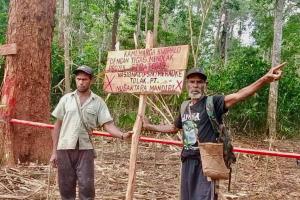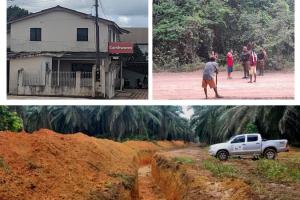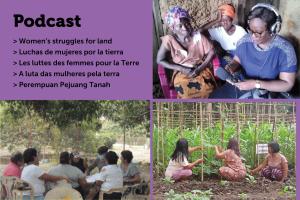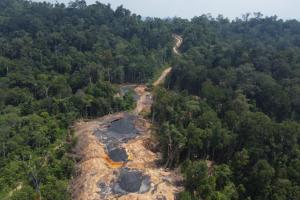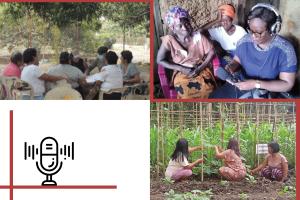Joint Press Release.
Indonesia
Bulletin articles
15 December 2025
The government of the Brazilian state of Pará – host of the COP30 climate conference – introduced an annual “Week of Awareness on the Importance of Carbon Credits”, the Indonesian government sets up a “Seller meets buyer” sales booth for carbon credits at the COP. These are the more visible signs of climate talks that are more concerned about creating business opportunities than halting the climate crisis.
Articles
10 December 2025
Hari ini, Rabu, 10 Desember 2025, diperingati sebagai hari internasional untuk Hak Asasi Manusia, ditengah situasi horor kemanusiaan dan bencana ekologi yang memprihatinkan. Penderitaan, luka dan air mata, karena kehilangan tanah dan harta benda, kekerasan, penyiksaan fisik dan psikis, pengungsi di tanah sendiri dan korban pelanggaran HAM, masih terus terjadi di tanah
Bulletin articles
15 October 2025
We are peasants from Indonesia, the world’s largest producer of palm oil. In recent decades, we have witnessed the spread of oil palm monocultures in our territory, an expansion driven by multinational companies with government support. False promises led us to accept plantation partnership schemes that put us at risk of losing our land. What was once forest and traditional crops have been replaced by monocultures that have left us with food shortages, debt, and the threat of floods. For this reason, we organized ourselves to end this exploitation and restore our traditional way of life. And here we share the story of our struggle.
Articles
29 September 2025
Press Release of Yayasan Pusaka Bentala Rakyat
Jakarta, 22 September 2025
Articles
25 June 2025
Civil Society Response to the Indonesian Government's Reply to the Letter from Nine UN Special Rapporteurs Regarding the Merauke National Strategic Project
Bulletin articles
24 June 2025
The following excerpts are from conversations we had with people who, despite living on different continents, have made the same choice: to live without electricity. Whether they live in the Indonesian archipelago or the Brazilian Amazon, their testimonies show that electricity is not an essential resource for human life. On the contrary, for these people, it is essential to do without it.
Bulletin articles
24 June 2025
WRM Bulletin 274 included an article on the work of the Earthworm Foundation, entitled: ‘NGOs at the service of plundering territories: the Earthworm Foundation case’. It describes how corporations which are causing conflict in the territories where they operate profit from cooperation with groups like Earthworm Foundation, while violence against community activists, landgrabs and sexual assaults of women continue.
Multimedia
1 April 2025
Video - Militarised deforestation in Papua: how Indonesia is converting indigenous forest into farms
The Indonesian government’s food estate programme aims to convert 1.6 million hectares of land in Papua into rice fields and sugar cane plantations, annexing indigenous lands in the process. Thousands of troops have been sent from Java to support President Prabowo Subianto’s signature policy. Video made by The Gecko Project.
Articles
19 March 2025
In the framework of International Women's Day, WRM is relaunching the podcast “Women’s struggles for land”, with stories from women’s collectives from the coastal area of Chiapas in Mexico, the Malen Chiefdom in Sierra Leone and the Kapuas river area of Central Kalimantan in Indonesia. While their stories appear quite different from each other at first glance, we find many commonalities and a strong connection between them.
Bulletin articles
15 December 2024
In the province of East Kalimantan, the World Bank is supporting the Indonesian government’s first jurisdictional REDD programme. International conservationist NGOs, TNC and WWF, have been playing a key role in the preparation and execution of the programme. While they proclaim it to be a “success story” (1), this programme is full of contradictions. Available in Indonesian.
Multimedia
25 November 2024
On the International Day for the Elimination of Violence against Women, WRM is sharing the podcast "Women’s Struggles for Land", which we have jointly produced with women's organizations and networks from Mexico, Sierra Leone and Indonesia.


